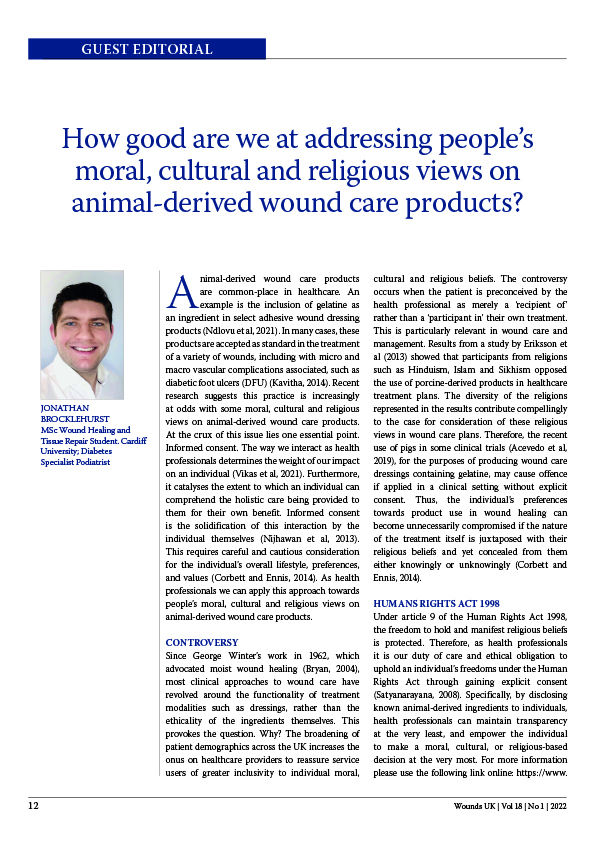Animal-derived wound care products are common-place in healthcare. An example is the inclusion of gelatine as an ingredient in select adhesive wound dressing products (Ndlovu et al, 2021). In many cases, these products are accepted as standard in the treatment of a variety of wounds, including with micro and macro vascular complications associated, such as diabetic foot ulcers (DFU) (Kavitha, 2014). Recent research suggests this practice is increasingly at odds with some moral, cultural and religious views on animal-derived wound care products. At the crux of this issue lies one essential point. Informed consent. The way we interact as health professionals determines the weight of our impact on an individual (Vikas et al, 2021). Furthermore, it catalyses the extent to which an individual can comprehend the holistic care being provided to them for their own benefit. Informed consent is the solidification of this interaction by the individual themselves (Nijhawan et al, 2013). This requires careful and cautious consideration for the individual’s overall lifestyle, preferences, and values (Corbett and Ennis, 2014). As health professionals we can apply this approach towards people’s moral, cultural and religious views on animal-derived wound care products.





